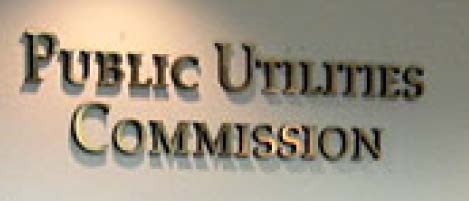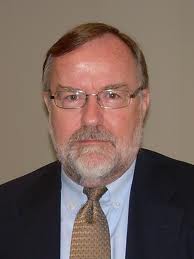Rulemaking Ch. 7829 at PUC tomorrow
November 18th, 2015
Tomorrow, the Chapter 7829 Rulemaking is going to the Commission, for approval of the FINAL rules. This rulemaking has been going on formally for over two years now in Docket 13-24 (go to NEW SEARCH and search for this docket).
Overland 7829 Comment Nov 18 2015
And some history… I’ve been concerned about this chapter for a long while, and submitted a Petition for Rulemaking over FOUR YEARS ago. Apparently that was filed in the trash:
And prior posts:
Ch. 7829 Rulemaking Comments July 20th, 2015
Stealth rulemaking — PUC’s Minn. R. Ch. 7829 July 10th, 2014
PUC’s Stealth 7829 Rulemaking Docket June 4th, 2013
PUC requests Comments on 7829 rules August 8th, 2013
Minn. R. 7829 marches on… September 9th, 2013
Rulemaking – Certificate of Need 7849
June 12th, 2013
How to work up excitement about the Certificate of Need rulemaking??? On its own, it’s dry, detailed, wonkish stuff, thrilling only to those of us who live and breathe need decisions and utility infrastructure siting and routing… but may there’s some pizazz in the machinations surrounding input, like lack of public representation on the Advisory Committee such that even my tremendous bulk doesn’t even it out. Does Xcel deserve THREE representatives? ITC two? “Participating Utilities” two, “Wind Coalition” one and none for Goodhue Wind Truth? Here’s the list:
Plus they’re not posting the drafts on the rulemaking site, so the public has no idea what’s being proposed:
And minutes from the first meeting:
To get to the docket, go to www.puc.state.mn.us and then “search eDockets” and search for 12-1246.
We’ll be talking about the Certificate of Need criteria next, and here’s what’s proposed:
7849.0120 CRITERIA CERTIFICATE OF NEED REQUIREMENTS.
A certificate of need must be granted to the applicant on determining that:
Subpart 1. Need Demonstration. An applicant for a certificate of need must demonstrate that the demand for electricity cannot be met more cost effectively through energy conservation and load-management measures.
Subpart 2. Renewable Resource Preferred. An applicant proposing an LEGF that uses a nonrenewable energy source must demonstrate that it has considered the use of renewable energy sources, as required under Minnesota Statutes section 216B.243, subd. 3a.
Subpart 3. Assessment of Need Criteria. In evaluating a certificate of need application, the
commission shall consider the criteria contained in Minnesota Statutes, section 216B.243, subd. 3, as well as the following:
A. whether the probable result of denial would be an adverse effect upon the future adequacy, reliability, or efficiency of energy supply to the applicant, to the applicant’s customers, or to the people of Minnesota and neighboring states, considering: the region;
(1) the accuracy of the applicant’s forecast of demand for the type of energy that would be supplied by the proposed facility;
(2) the effects of the applicant’s existing or expected conservation programs and state and federal conservation programs;
(3) the effects of promotional practices of the applicant that may have given rise to the
increase in the energy demand, particularly promotional practices which have occurred since 1974;
(4) B. the ability of current facilities and planned facilities not requiring certificates of need to meet the future demand; and
(5) the effect of the proposed facility, or a suitable modification thereof, in making efficient use of resources;
B C. whether a more reasonable and prudent alternative to the proposed facility has not been demonstrated by a preponderance of the evidence on the record, considering:;
(1) D. the appropriateness of the size, the type, and the timing of the proposed facility compared to those of reasonable alternatives;
(2) E. the cost of the proposed facility and the cost of energy to be supplied by the proposed facility compared to the costs of reasonable alternatives and the cost of energy that would be supplied by reasonable alternatives;
(3) F. the effects of the proposed facility upon the natural and socioeconomic environments compared to the effects of reasonable alternatives; and
(4) G. the expected reliability of the proposed facility compared to the expected reliability of reasonable alternatives;
C. by a preponderance of the evidence on the record, the proposed facility, or a suitable modification of the facility, will provide benefits to society in a manner compatible with protecting the natural and socioeconomic environments, including human health, considering:
(1) the relationship of the proposed facility, or a suitable modification thereof, to overall state energy needs;
(2) H. the effects of the proposed facility, or a suitable modification thereof, upon the natural and socioeconomic environments compared to the effects of not building the facility;
(3) I. the effects of the proposed facility, or a suitable modification thereof, in inducing future development; and
(4) J. the socially beneficial uses of the output of the proposed facility, or a suitable modification thereof, including its uses to protect or enhance environmental quality; and.
D. the record does not demonstrate that the design, construction, or operation of the proposed facility, or a suitable modification of the facility, will fail to comply with relevant policies, rules, and regulations of other state and federal agencies and local governments.
OAH’s continuing efforts to chill participation
June 28th, 2011
You may remember prior posts about that but I’ll start from the beginning and try to make it quick. There’s a pattern at the Office of Administrative Hearings that is disturbing…
Way back on the MinnCan pipeline, members of U-CAN had tried to intervene and were refused. They got late notice and were not represented, stumbling through the administrative process pro se. MPIRG showed an interest and started working on it, among other things, submitting a Petition for Intervention:
Despite the late notice and their attempts to “work within the system,” the Petition of MPRIG individual U-CAN members was denied:
And when they appealed, they were tossed out, as if they had not even tried to intervene:
So when CapX 2020 hit, and they filed a Certificate of Need and landowners learned it wasn’t just the pipeline, but now transmission TOO (how much can a landowner stand?) they got right to it, and intervened as United Citizens Action Network (U-CAN), participating pro se as they had no resources to hire an attorney and were in condemnation and appellate court at the time. They Petition, and were admitted as full parties. So what happens?
Judge Heydinger, the same ALJ in the CapX Certificate of Need case as in the MinnCan pipeline case, files sua sponte (on her own initiative, not a Motion brought by parties) a demand that they explain why they, and the Prairie Island Indian Community, should remain intervenors:
This had been done before in the Excelsior Energy Mesaba Project siting docket, where ALJ Steve Mihalchick booted out Xcel Energy, Minnesota Power, and my client, Public Energy – Mesaba, because no testimony had been provided:
This docket went forward, there were two days of hearings, first in Taconite, where ALJ Mihalchick rammed through 4 witnesses and where we weren’t provided adequate opportunity for questioning, and, I swear, when I tried to get a table, he said, “Whatever would you need a table for?” Really… after much hassle, Bill Storm of Commerce found one (thank you!!). Since that day, I bring my own. Anyway, the second day, it was -30 in Hoyt Lakes and the hearing was in the unheated gym next to the hockey rink.
That day, Judge Mihalchick rammed through … what… 16 witnesses?… in one day, and left saying, “I’m not coming back here.”
Travesty doesn’t begin to characterize that hearing. And worse, Excelsior Energy got a permit for a vaporware project:
Fast forward to 2011, where ALJ Heydinger has now again issued a similar Order to Show Cause regarding two intervenors, Energy Cents and Verso Paper:
Here’s Verso Paper’s response:
Just filed: Order Confirming Party Status – Verso Paper
Where’s the Energy Cents Coalition?
Anyway, I’ve submitted a Rulemaking Petition to OAH about Minn. R. Ch. 1400 & 1405 to try to address some of this. We shall see…




